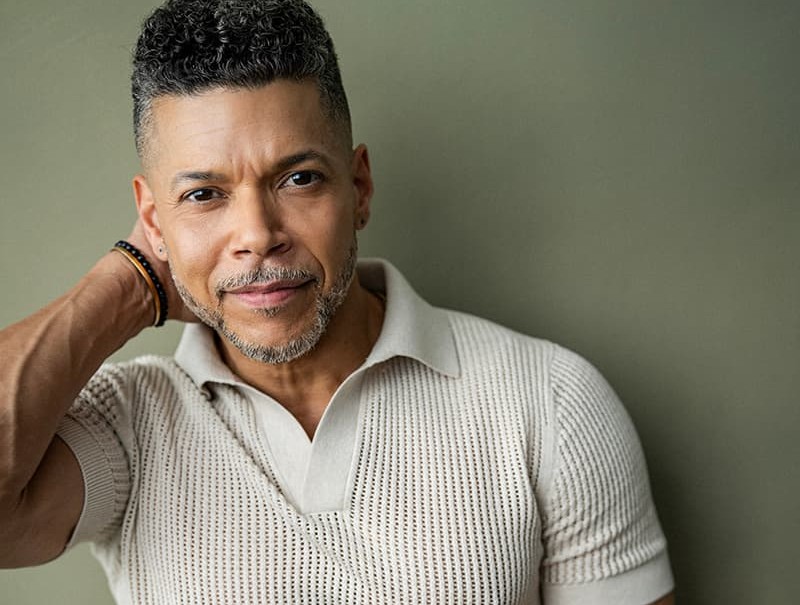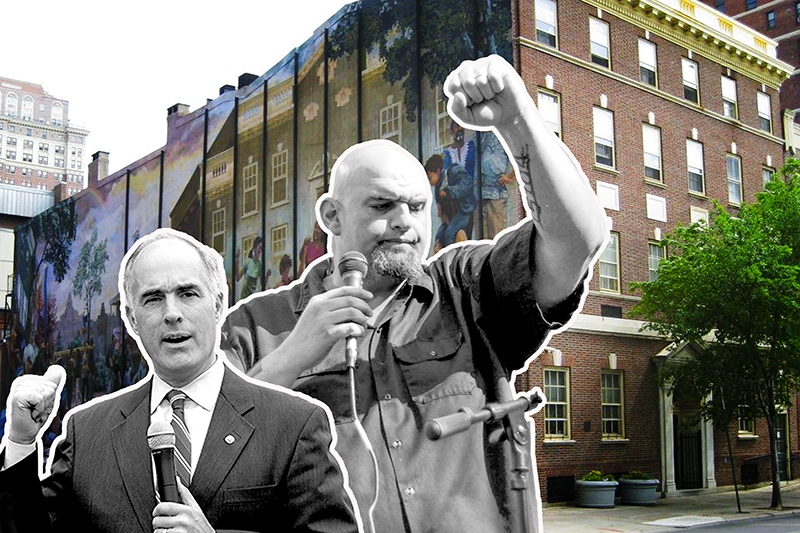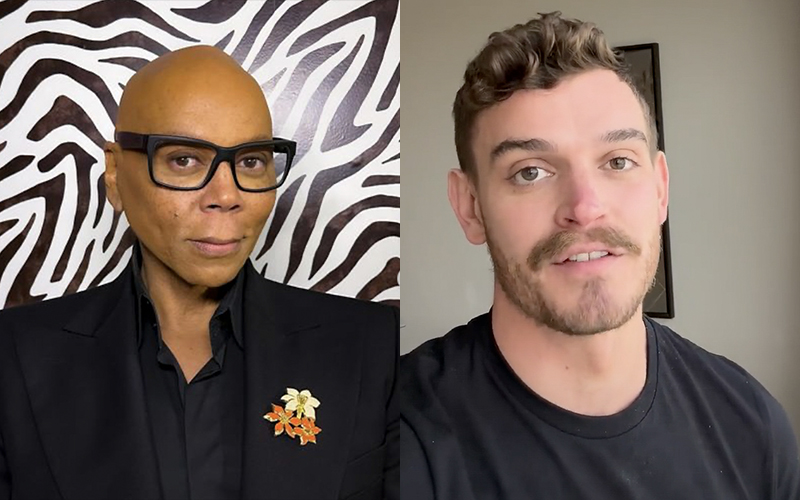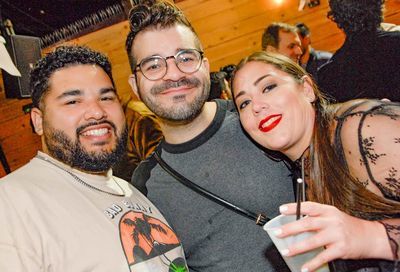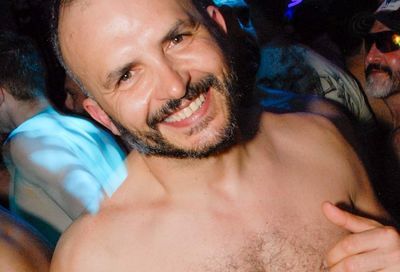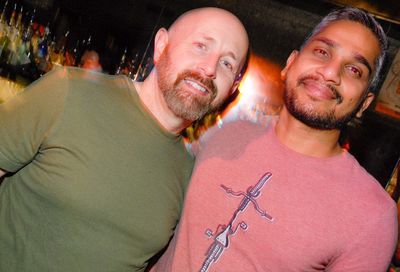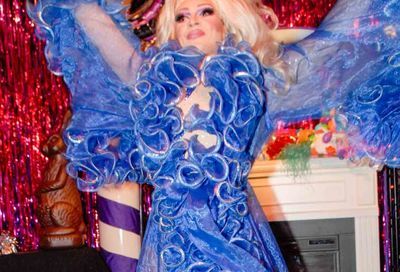Living Icon: Edie Windsor on being an LGBTQ icon and SCOTUS’s future
Edie Windsor's Supreme Court case paved the way for nationwide marriage equality. Even at 87, the Pride Parade Grand Marshal is more than ready for a weekend of celebration and protest.

The name Edie Windsor has become synonymous with LGBTQ rights. The lionhearted 87-year-old made history in 2010 when she sued the federal government over its enforcement of the anti-gay “Defense of Marriage Act.”
Under the act, the government refused to recognize her marriage to longtime partner and spouse Thea Spyer, leaving Windsor with a bill of more than $363,000 in estate taxes. Not one to shrink away from a challenge, Windsor took her case all the way to the U.S. Supreme Court, which ruled that the government must recognize the legal marriages of gay and lesbian spouses in the same way that heterosexual marriages are recognized.
Windsor’s victory in the nation’s highest court provided the basis for later decisions, most notably the Court’s 2015 ruling in Obergefell v. Hodges, overturning various state bans on same-sex marriage.
Because of the historic nature of her win, and the precedent it set for the future of LGBTQ rights, Windsor has become a mini-celebrity in the community. She’s earned several honors, including a Lifetime Achievement Award from the National LGBTQ Task Force, an Individual Leadership Award from PFLAG, and the Keeping Faith Award from the American Constitution Society for Law & Policy. That fame has prompted people to stop her on the street to ask her to take photos with them, or to express their thanks for her trailblazing ways.
“It’s like a big love affair between me and the gay community,” Windsor says. “When they stop me on the street, it’s always to say something nice, to thank me for something. It’s all joy and it’s all love.”
As Capital Pride seeks to revisit its roots and renew the spirit of LGBTQ activism that was sparked by the Stonewall Riots almost five decades ago, it is only fitting that Windsor was named one of four grand marshals of the 2017 Capital Pride Parade. She’ll join Jim Obergefell, lesbian social justice activist Mandy Carter, and San Diego City Commissioner and LGBTQ rights advocate Nicole Murray-Ramirez on the route.
Despite the angst many LGBTQ people feel under the Trump administration, Windsor does not believe the hard-fought gains of the LGBTQ rights movement can be so easily reversed — whether it’s marriage or the right to live free from discrimination. While progress may not be linear, Windsor’s life journey, including her own transition from closeted computer programmer to the driving force behind one of the most consequential Supreme Court decisions in queer history, is testament to how societal acceptance of LGBTQ people continues to evolve.
“People are slow to get many things,” says Windsor. “But ultimately, they get stuck, like when they discover that their kid is gay, they discover that their next door neighbor’s gay. Attitudes begin to change gradually. Ten years ago, the majority of people in this country were not in favor of our marriages. But today, they are.”
METRO WEEKLY: How does it feel to be chosen as Grand Marshal of Capital Pride?
EDIE WINDSOR: It’s always joyous to be chosen to be the Grand Marshal. And I’ve been it in a number of circumstances. This is, of course, the biggest one, and the most powerful. It’s a little different this year than previous years, because our political circumstances are different.
I feel a responsibility to make sure that everybody who’s with us, everybody who’s spending the day with us or the week with us, realizes the extent to which we are a community. And there is going to be a lot of difficulty, but we also are more established and ready for it than we ever have been before. So I feel especially important as a Grand Marshal to make sure that I get the message across.
MW: On the same day as the Pride festival, there’s a national LGBTQ March on Washington. What’s your advice for the modern-day activists who are assembling the march?
WINDSOR: I think the activists have already answered that question. They are defending our rights all over the country at the moment. We’re all a little more defensive than we had to be last year or the year before. I think everybody’s aware of that.
My sense is hang in, stay connected with everybody. Don’t let anything make you feel that somehow they can beat us, because they can’t. We’ve got some very strong Supreme Court precedents on our side. It would be very difficult to destroy what we have.
MW: You’re now a prominent figure in the LGBTQ rights movement. How have people treated you?
WINDSOR: The public is kind of wonderful with me. I guess I’ve become everybody’s icon, in some sense. Every once in awhile, out of 300 or 3,000 or 3 million responses to something, you get two mean ones. Within seconds, all of the other people are telling the mean ones how wrong they are. So I feel pretty strong about how the wider public feels with me.
If I get on the subway, there’s always somebody across the way who will say, “Are you Edie?” Kids stop me on the street to thank me for everything I’ve done and am doing. So if there’s a community out there that doesn’t like me, I literally don’t see them.
MW: What would you like your legacy to be?
WINDSOR: I think just the Supreme Court, frankly.
MW: How did you feel about Trump appointee Neil Gorsuch’s confirmation to the Supreme Court?
WINDSOR: It’s disastrous. But do I think he has the control to change much for us? No, I don’t. I think some things that have not yet been taken up, some of the things that never happened under the last president, which we wanted? Those still might not happen and we might have to wait until the end of the four years or two years with a new Congress.
But other than that, I think we probably still have a semi-majority on the Court. We would still have four against five where we, in essence, have five — well, we have four and two quarters, let me put it that way. So I don’t think Gorsuch is going to be a big deal. I think the best thing we could do with him is remind him somehow that his daughters may turn out to be gay. Certainly, his neighbors might, and a lot of other people.
MW: Do you ever worry about the Supreme Court changing and endangering LGBTQ rights? For instance, if Justice Ginsburg or Justice Kennedy were to retire?
WINDSOR: Hopefully, everybody stays there. But even if the Court becomes more against us in numbers, it’s really hard to change Supreme Court decisions.
Our significant Supreme Court victories today are laws of the land. For instance, Roe v. Wade. We did not have a [pro-choice] majority for a lot of those years, but it didn’t matter, because it’s a strong law. Hopefully, we’ll get more people into the Senate and have more strength on our own side. We’ll spend much more attention not on the specific rights that they’re dealing with, but on who we’re putting into the Congress. I don’t think our main rights will be touched. So that includes the marriage stuff. I don’t think they have a chance in hell.
MW: How does it make you feel when you hear about states trying to invalidate the Supreme Court’s rulings on same-sex marriage?
WINDSOR: My case already gave us the right to marry and the right for the federal government to protect us. A state can’t change the law of the federal government. They would literally have to go in and kill Obergefell’s whole case to do otherwise.
Texas cannot change the law for any other state, nor can Tennessee. All they’re changing is the law of their state. So what I would say to people who live in Texas and Tennessee, depending on who you are and how old you are and the like, don’t panic. If worse comes to worse, move.
The lawyer for my case [Roberta Kaplan] has been working with most of the Southern states. It is a hard job, but she’s making some progress. Again, in many cases, individuals are going to have to get out of those states. But you also have to remember [the state appeals court in] Texas was the first place that said you can’t put a man in jail for sleeping with another man. So it’s very hard to say. But they can’t ignore the Supreme Court’s ruling completely. They can only ignore it as it particularly pertains to their state.
MW: Can you imagine a situation where people might have to hide their identity because of anti-LGBTQ laws?
WINDSOR: No, I can’t really. Again, I think it’s conceivable that some people in a state like Tennessee might feel that way, and my answer to that is move. It’s easier to move. If you can’t move, if family obligations keep you in place, then indeed, you may have to hide your identity. But some of us will never hide our identity again.
I worked for IBM for 16 years. I lied for 16 years to people I loved. We ate lunch together, we had drinks together, we spent weekends together until I met Thea. Today, you don’t have to do that at IBM. You don’t do that anywhere, almost. It’s unlikely that LGBT people in the United States would have to do such a thing again.
MW: What was the impact of having to hide at work?
WINDSOR: None, really, because I had a whole life outside of work. Also, I enjoyed the time spent with my colleagues. They were my friends. I just couldn’t talk about my life outside of there.
Afterwards, when Thea’s and my marriage appeared in The New York Times, we heard from people from every walk of our lives. Hundreds and hundreds of people — I mean, kids that I played with when I was young in fifth grade and stuff like that. The reaction I got from everybody I worked with at IBM was, “Edie, you’ve lied to us! How come?” Or, “Edie, how come you didn’t go to the wine tasting?” And my answer of course was, “Well, because I was queer then.”
MW: What does Pride mean to you?
WINDSOR: I see the word “pride” in general as the opposite of shame or stigma. Pride is unwilling to yield to either of them. That certainly has been true of the LGBT community, and over the years we’ve become much less apprehensive, less ashamed or worried that someone would know we’re gay. So the opposite of shame is really what Pride means. In this case, we use our pride to join together, to work together, to understand that we can help each other, as well as ourselves, during a period of uncertainty.
MW: That ties in with Capital Pride’s theme this year, the idea of being “unapologetically proud.”
WINDSOR: Yes. I just think it’s a wonderful expression of it. You can’t frighten us anymore.
The Capital Pride Parade is on Saturday, June 10, from 4:30-7:30 p.m. The parade starts at 22nd and P Streets NW, and ends near 14th and R Streets NW. For more information, visit capitalpride.org.
Support Metro Weekly’s Journalism
These are challenging times for news organizations. And yet it’s crucial we stay active and provide vital resources and information to both our local readers and the world. So won’t you please take a moment and consider supporting Metro Weekly with a membership? For as little as $5 a month, you can help ensure Metro Weekly magazine and MetroWeekly.com remain free, viable resources as we provide the best, most diverse, culturally-resonant LGBTQ coverage in both the D.C. region and around the world. Memberships come with exclusive perks and discounts, your own personal digital delivery of each week’s magazine (and an archive), access to our Member's Lounge when it launches this fall, and exclusive members-only items like Metro Weekly Membership Mugs and Tote Bags! Check out all our membership levels here and please join us today!




